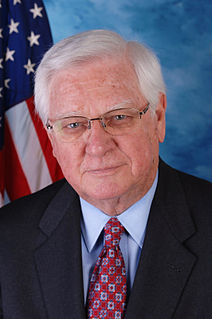A Quote by Tatiana Schlossberg
Coal ash, the hazardous byproduct of burning coal to produce power, is a particularly insidious legacy of the nation's dependence on coal.
Quote Topics
Related Quotes
I learned about coal ash, which is the byproduct of burning coal for electricity. It is one of the largest solid industrial waste streams in the country, and it contains harmful substances like arsenic, lead, mercury and more, and because of how it is stored, pollutes groundwater and drinking water all over the country.
Coal ash gets far less attention than toxic and greenhouse gas emissions from power plants, but it has created environmental and health problems - every major river in the Southeast has at least one coal ash pond - and continuing legal troubles and large cleanup costs for the authority and other utilities.
Coal used to be a very dirty fuel but coal has become cleaner and cleaner over the decades. Clean coal now is quite clean. Clean coal now has the same emissions profile as natural gas. Clean coal can become cleaner still. We can take even more of the pollutants out of coal and I believe we should. Clean coal, I think, is the immediate answer to Canada's energy needs and the world's energy needs. There are hundreds of years available of coal supplies. We shouldn't be squandering that resource. We should be using it prudently.
It's not as though we can keep burning coal in our power plants. Coal is a finite resource, too. We must find alternatives, and it's a better idea to find alternatives sooner then wait until we run out of coal, and in the meantime, put God knows how many trillions of tons of CO2 that used to be buried underground into the atmosphere.
Coal is a portable climate. It carries the heat of the tropics to Labrador and the polar circle; and it is the means of transporting itself whithersoever it is wanted. Watt and Stephenson whispered in the ear of mankind their secret, that a half-ounce of coal will draw two tons a mile, and coal carries coal, by rail and by boat, to make Canada as warm as Calcutta, and with its comfort brings its industrial power.
The climate-change industrial complex pontificates that the U.S. has to stop using coal to save the planet. But even if the U.S. cut our own coal production to zero, China and India are building hundreds of coal plants. By suspending American coal production, we are merely transferring jobs out of the U.S.
Letting the perfect be the enemy of the good is one of the reasons we have a coal-dependent infrastructure, with the resulting environmental impact that all of us can see. I suspect environmentalists, through their opposition of nuclear power, have caused more coal plants to be built than anybody. And those coal plants have emitted more radioactive material from the coal than any nuclear accident would have.




























